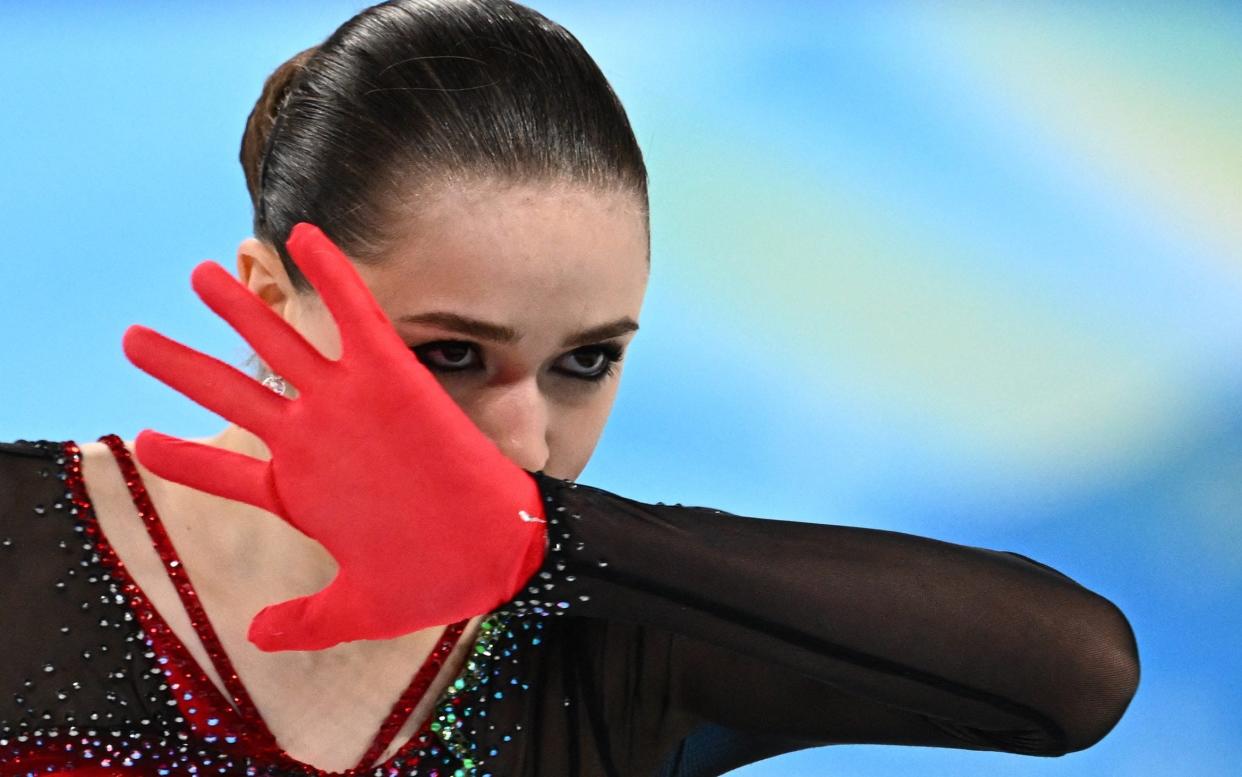Olympics ignores Zelensky's plea to ban Russian athletes

Plans to allow Russian athletes to compete at next year’s Olympics, in defiance of a direct plea from Volodymyr Zelensky, have been strongly condemned by the Government.
Michelle Donelan, the Culture Secretary, has accused the International Olympic Committee of helping Vladimir Putin “legitimise his illegal war in Ukraine” by ending its opposition to Russians and Belarussians participating in international sporting events.
It followed an announcement by the IOC that it would explore ways for athletes from countries involved in the invasion to compete as neutrals at Paris 2024. That announcement came hours after the West agreed to provide tanks to Ukraine.
Donelan said: “In light of the ongoing indiscriminate and barbaric attacks by Russia on Ukraine, over the past 24 hours the United States and Germany have announced they will be providing a significant number of battle tanks.
“However, at this critical time, the International Olympic Committee is now looking at a pathway for Russia and Belarus to be represented in Paris.
“I want to be clear that this position from the IOC is a world away from the reality of war being felt by the Ukrainian people – and IOC President Bach’s own words less than a year ago where he strongly condemned Russia for breaking the Olympic Truce and urged it to ‘give peace a chance’.
“We will strongly condemn any action taken that allows President Putin to legitimise his illegal war in Ukraine – a position the IOC previously shared.
“We, and many other countries, have been unequivocal on this throughout, and we will now work urgently across like-minded countries to ensure that solidarity continues on this issue.”
Last month Zelensky pleaded directly with IOC counterpart Thomas Bach, urging him to pivot toward “complete isolation” of Russian athletes ahead of next year’s Olympics. On Tuesday, Ukraine’s Sports Minister Vadym Guttsait also warned the IOC that Russian athletes were actively involved in the war against his country.
However, the committee confirmed on Wednesday it was actively exploring the process behind them returning to Olympic competitions under a neutral title. Despite opposition in parts of Europe and America, the Olympic Council of Asia has offered Russian and Belarussian athletes the chance to compete in events that would allow them to qualify for Paris 2024.
'No athlete should be prevented from competing'
Since the Russian invasion of Ukraine in February last year, most sports bodies have moved events and suspended Russian teams or athletes, while sponsors ended contracts in protest against the war.
Uefa this week maintained its ban on clubs and Ukraine officials have warned that the nation could consider some sort of protest or boycott if Russia does compete in Paris.
The IOC is effectively open to Russians competing under the Olympic flag, announcing following consultation with stakeholders that “no athlete should be prevented from competing just because of their passport”.
The process was announced in a press release from the IOC headlined ‘Statement on solidarity with Ukraine, sanctions against Russia and Belarus, and the status of athletes from these countries’.
But statement added: “With regard to the individual athletes with Russian or Belarusian passports, the vast majority of the participants in each of the consultation calls expressed the following: Strong commitment to the unifying mission of the Olympic Movement, requesting and encouraging it to live up to this unifying mission, particularly in these times of division, confrontation and war.
"Respect the rights of all athletes to be treated without any discrimination, in accordance with the Olympic Charter. Governments must not decide which athletes can participate in which competition and which athletes cannot. No athlete should be prevented from competing just because of their passport. A pathway for athletes’ participation in competition under strict conditions should therefore be further explored.”
In contrast, Uefa this week told Russian football teams they will remain banned from European competitions. Russia will also not host the Uefa Super Cup later this year, which was due to be played in Kazan.
The IOC previously cited a statement from France’s president, Emmanuel Macron, who said: “Sport should not be politicised. These major events are meant to allow athletes from all countries, sometimes including countries at war, to bring sport to life. Also, to find, through sport, ways of discussing where people can no longer talk to each other – I think that should be preserved.”

 Yahoo News
Yahoo News 
